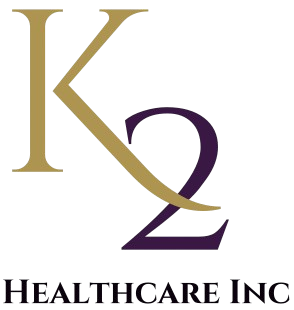Depression
What is Depression?
Depression is a common but serious mental health condition characterized by persistent feelings of sadness, hopelessness, and a loss of interest in daily activities. It goes beyond typical mood fluctuations and can interfere significantly with a person’s work, relationships, and quality of life. Depression affects both mental and physical health, impacting how a person thinks, feels, and behaves. While it can happen to anyone, it often results from a complex interaction of biological, psychological, and environmental factors.
Common Symptoms of Depression
Symptoms of depression can vary from person to person but often include a combination of the following:
- Persistent sadness or low mood: Feeling down, hopeless, or empty most of the day, nearly every day.
- Loss of interest or pleasure in activities: A lack of enjoyment in activities that were once pleasurable.
- Changes in appetite or weight: Significant weight loss or gain due to changes in appetite.
- Sleep disturbances: Insomnia or oversleeping (hypersomnia).
- Fatigue or loss of energy: Feeling tired almost every day, even with sufficient sleep.
- Feelings of worthlessness or excessive guilt: Self-criticism, guilt, or low self-esteem that is disproportionate to the situation.
- Difficulty concentrating: Trouble focusing, making decisions, or remembering details.
- Psychomotor agitation or retardation: Physical symptoms, such as restlessness or slowed movements and speech.
- Thoughts of death or suicide: Recurrent thoughts of death, suicidal ideation, or suicide attempts.
These symptoms can range from mild to severe and typically last for at least two weeks to be considered part of a depressive episode.
How is Depression Diagnosed?
Diagnosing depression involves a comprehensive evaluation by a mental health professional, typically a psychiatrist, psychologist, or primary care provider. The diagnosis is based on:
- Clinical Interviews: A detailed discussion about symptoms, including their duration, severity, and impact on daily life. Family history of mental health conditions may also be considered.
- Diagnostic Criteria: Most mental health professionals use standardized criteria from the DSM-5 (Diagnostic and Statistical Manual of Mental Disorders, 5th Edition) or ICD-10 (International Classification of Diseases, 10th Edition) to identify depression.
- Physical Examination and Lab Tests: While depression is primarily a psychological condition, some physical health issues (like thyroid disorders) can cause similar symptoms. A doctor may perform a physical exam or order lab tests to rule out other causes.
Treatment Options for Depression
Effective treatments for depression typically involve a combination of therapies that address both the psychological and physical aspects of the condition. Common treatment options include:
- Psychotherapy: Also known as “talk therapy,” it is a key component in treating depression. Common types include:
- Cognitive Behavioral Therapy (CBT): Helps individuals identify and modify negative thought patterns and behaviors.
- Interpersonal Therapy (IPT): Focuses on improving personal relationships that may contribute to depressive symptoms.
- Psychodynamic Therapy: Explores past experiences to understand underlying emotional conflicts.
- Medication: Antidepressants, prescribed by a psychiatrist or healthcare provider, are used to help regulate brain chemistry. Common types include:
- SSRIs (Selective Serotonin Reuptake Inhibitors): Like fluoxetine or sertraline.
- SNRIs (Serotonin-Norepinephrine Reuptake Inhibitors): Like venlafaxine.
- Other classes: Like atypical antidepressants or tricyclic antidepressants, which may be prescribed in certain cases.
- Lifestyle Modifications: Exercise, sleep hygiene, a balanced diet, and stress management techniques can play a significant role in managing depression.
- Support Groups and Peer Support: These offer a sense of community, reduce isolation, and allow individuals to share experiences with others facing similar struggles.
- Alternative Treatments: Practices like mindfulness, meditation, acupuncture, and yoga have shown benefits for some people with depression and can be used alongside conventional treatments.
- In Severe Cases:
- Electroconvulsive Therapy (ECT): Used primarily for severe depression that doesn’t respond to other treatments, ECT involves controlled electric currents to help improve symptoms.
- Transcranial Magnetic Stimulation (TMS): A non-invasive procedure using magnetic fields to stimulate nerve cells in the brain.
